As a personal trainer, I often encounter the question: do protein shakes lead to weight gain? This concern arises because some individuals notice an increase in weight after incorporating protein shakes into their diet. It's important to understand that protein shakes are designed to enhance your protein intake, particularly in conjunction with a workout regimen.
Proteins play a crucial role in repairing damaged muscles and supporting the development of new cells. However, it's essential to be aware that consuming protein shakes without engaging in regular exercise can lead to weight gain. These shakes are supplements intended to augment your body's protein levels.
By the end of our discussion today, we'll clarify whether protein shakes truly contribute to weight gain.
Quick Summary
Do Protein Shakes Make You Fat?

No protein shakes don't make you fat. However, poor choices surrounding their inclusion as a meal replacement in your diet could lead to weight gain.
In that case, you can use a low calorie protein powder to minimize the weight impact while still taking the nutrients that you need.
You can use protein powders as a replacement to whole foods, and if done properly, it can aid in weight loss.
Calorie Counting
If your goal for your protein shake is to lose weight, then you are typically going to be using it as a meal replacement alongside a regular exercise routine. Protein is not a miracle product, and it is certainly not a magic pill.
I've personally replaced my morning meal with a protein powder supplement on many occasions. Not only did it kick start my metabolism, but it also significantly reduced my appetite throughout the day. This is a strategy I often recommend to clients looking to manage their weight.
You will still need to be very aware of the caloric intake of your other meals. If you find yourself in a caloric deficit, you'll burn fat. If, however, the protein powder adds to a caloric surplus, you will obviously be putting on those pounds you wanted to shed.
Choose a protein shake that is low in calories and high in its protein content and stay away from protein in the rest of your meals if it makes up 25% of your caloric intake for the day by itself (more on that later).
It's All In The Mix
A big part of counting calories is knowing what ingredients are in your protein powder and the makeup of its nutritional profile.
A study by the National Institute of Health (NIH) found that powders containing 20-80 grams of protein reduced hunger by 50 to 65%,[1] meaning that you only really need around 20 grams of protein if your goal is weight loss. Anything else would be excessive.
What you mix your shake with would be the next most important factor. Ideally, water and ice, with maybe a piece of fruit for a little flavor and consistency, is definitely the recommended blend for weight loss.
You can use dairy or dairy-free milk, but you'll be chalking up more calories if you do.
Meal replacements supplemented with caffeine, or fortified with fiber have proven links that they reduce appetite and make you feel fuller for longer. So choosing a powder that is based around these ingredients could improve your experience.
Meal Planning
Now, while some protein shakes are advertised as meal replacements, no-one is recommending you replace every meal with them. If you want a hardcore liquid-only diet, it should only be for a short while. It won't help in the long-run.
"Replacing meals with protein shakes may help you reduce your daily calories, which can help you lose weight. But eventually, you will need to start eating solid food again."
- Katherine ZeratskyEditor for the Nutrition And Healthy Eating Guide
Try replacing your breakfast or lunch with a protein shake and plan your other meals around that. Make sure you are hitting your nutritional needs but still leaving yourself in a caloric deficit if you're looking to shed those unwanted pounds.
The average person needs 46 to 56 grams of protein a day, and you could easily do this with a shake and allow your other meals to focus on the other nutrients of a healthy diet.
Can Protein Shakes Help You Lose Weight?
In my professional experience, I've seen numerous clients lose weight effectively with the help of protein shakes. Combined with a careful diet and regular exercise, protein shakes can significantly impact weight loss and diet control, as I've witnessed in both my clients' and my own fitness journey.
This is due to its ability to reduce hunger, increase metabolism, and act as a meal replacement with fewer calories than other options.
Hunger Reduction

Protein has been proven in several studies to reduce appetite, control hunger, and help you to feel fuller for longer.
In fact, in one study by NIH, participants were found to consume 135 fewer calories later in the day after having had a protein shake in the morning [2].
But how does it have this effect? In regards to appetite reduction, it's in large part due to the production of hormones such as GLP-1, CCK, and PYY, which protein has a positive correlation on.
Increased Metabolism
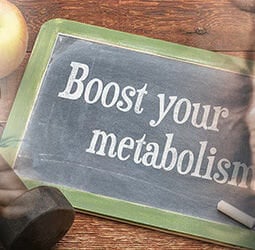
From my own training experience and working with clients, I've observed that a high protein intake can notably increase metabolism. This boost helps the body burn more calories and is particularly effective when combined with strength training to build muscle.
Again, this effect is best observed when combined with a good workout regime and strength training. The protein won't do all the work for you.
Your ability to build muscle will depend on your condition when going into the diet and training, but a study has shown that participants that were given protein supplements gained more muscle mass and lost more fat than those who were not.
Protein also has a higher TEF or Thermic Effect of Food than other nutrients, with 15 to 30% of protein calories being burned during digestion, opposed to 5 to 50% for carbs and 0 to 3% for fats.
Ultimately, protein helps you build muscle, which will help you to burn more fat naturally, while also being burned more effectively during digestion.
Muscle Maintenance
Building muscle to help your metabolism is only as good as the longevity of those muscles.
A lot of weight-loss diets will actually cause you to lose muscle mass, which means when you come off the diet, you're almost certain to pile the pounds back on due to metabolic slowdown.
According to NIH, high protein diet combined with strength training helps to reverse muscle loss or atrophy and actively encourages muscle growth, teaching good habits that will hopefully persist even after the diet is done [3].
To lose weight and keep it off, you need to train your body and mind.
By building muscle, you will be creating a fitness routine, and the protein shakes are designed for exactly that purpose. Yes, they help you lose weight, but primarily by helping you to build muscle.
Here's a video on how to use protein powder correctly for weight loss:

DIY Protein Shake Recipes for Weight Management
-
Weight Loss Protein Shake:
Ingredients:
- 1 cup unsweetened almond milk
- 1 scoop plant-based protein powder
- 1/2 cup frozen berries (blueberries, raspberries)
- 1 tablespoon chia seeds
- 1/2 teaspoon cinnamon
- Ice cubes
Method: Blend all ingredients until smooth. The high protein content from plant-based protein powder and chia seeds supports satiety, while berries provide antioxidants and fiber. The addition of cinnamon helps regulate blood sugar levels.
2. Weight Gain Protein Shake:
Ingredients:
- 1 cup whole milk
- 1 scoop whey protein powder
- 1 ripe banana
- 2 tablespoons almond butter
- 1/4 cup Greek yogurt
- 1 tablespoon honey
Method: Blend all ingredients until creamy. This shake combines the protein boost from whey, healthy fats from almond butter, and the natural sweetness of banana and honey. Whole milk provides extra calories for those aiming to gain weight, while Greek yogurt adds a dose of probiotics for digestive health.
Customize serving sizes based on individual nutritional needs, and consider consulting with a nutritionist for personalized adjustments.
FAQ

What Happens if You Eat Only Protein?
Eating only protein is not advised in the long term, as it's not going to provide you with a diverse enough selection of nutrients. The diet might not be harmful when done in a short period, but even then, it doesn't provide any additional benefit as opposed to a well balanced high protein diet would.
Is It Bad to Drink Protein Shakes Every Day?
It's not bad for a healthy person to drink protein shakes every day. There was some confusion as to whether this may have been harmful to the kidney, but this research has since been disproved with newer studies, showing it may be beneficial for those with existing kidney problems.
What Is The Best Type Of Protein For Losing Weight?
From our research, no particular protein is better than another when it comes to weight loss. It seems they all have a few studies and research that prove them to be superior in one way or another.
Whether you choose whey, soy, or hemp, just the fact that you are taking protein in the right amounts is the most important factor to consider.
Speaking of, here are the protein powders I recommend:
References:
- https://www.ncbi.nlm.nih.gov/pubmed/25979566
- https://pubmed.ncbi.nlm.nih.gov/25889354/
- https://www.ncbi.nlm.nih.gov/pubmed/23446962/
About The Author
You May Also Like

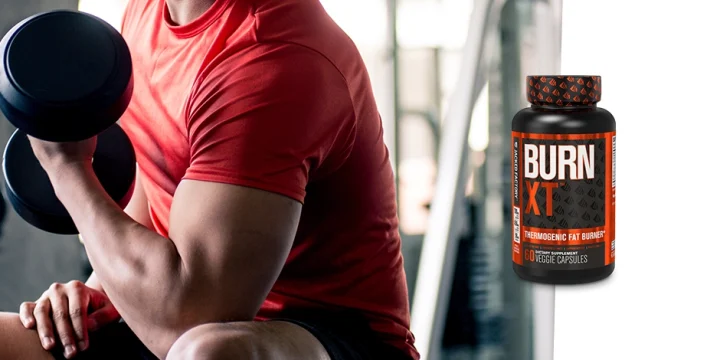
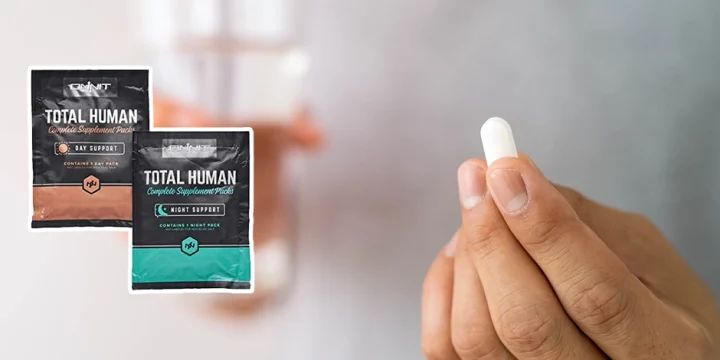

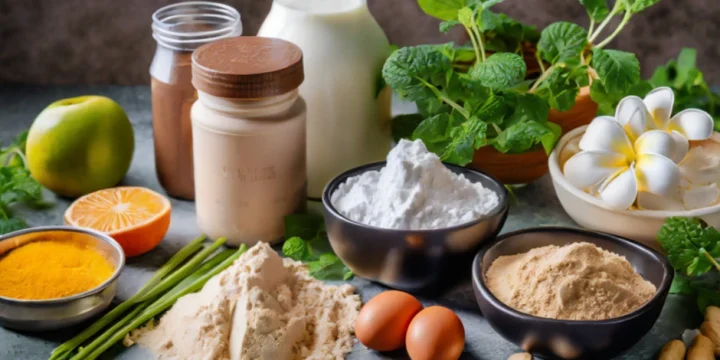
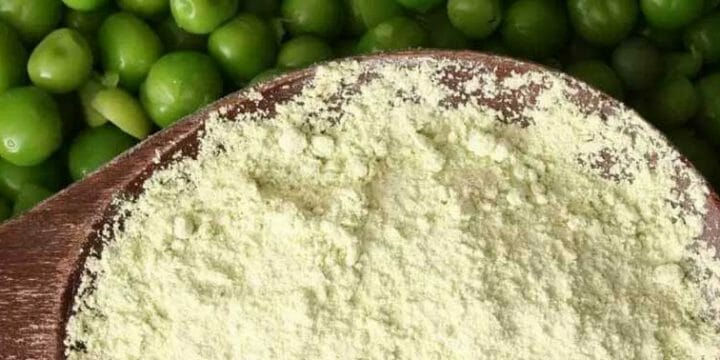

So, does protein powder cause weight gain? Finally, it’s confirmed that it doesn’t.
I think the question, “can protein shakes cause weight gain” depends on the quantity of your intake and how responsive your body is to protein shakes.